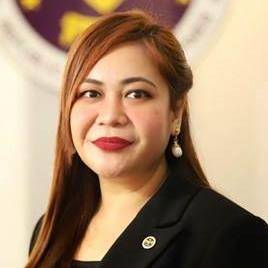Plenary: Financial Resilience in Times of Crisis: Strategies from Finance Perspectives
The discussion centered on the various approaches to disaster risk finance (DRF) and management in different countries, highlighting the importance of financial instruments and strategies in mitigating the impacts of natural disasters. One significant initiative highlighted is the Caribbean Risk Insurance Facility (CRIF), which was established following the devastation of Hurricane Ivan. CRIF allows Caribbean nations to pool resources, transfer risks, and access financing that would otherwise be unattainable. This parametric insurance facility offers a flexible and affordable way for small island nations to secure coverage against natural disasters. Grenada recently renewed its CRIF policy for $1.5 million, providing coverage exceeding $57 million. This arrangement is particularly beneficial for small islands that face fiscal constraints and must balance disaster preparedness with immediate development needs, such as education and infrastructure. Morocco’s integrated national strategy for disaster risk management was developed after the 2004 earthquake. Morocco’s strategy includes a disaster risk finance system established by law in 2020, which features two schemes: an insurance scheme for individuals and businesses, and a solidarity scheme. This system addresses various risks, including earthquakes, floods, and man-made disasters like terrorism. Additionally, Morocco is working on enhancing social protection and financial inclusion to bolster resilience against disasters. In the Philippines, the government recognized its vulnerability to natural disasters as early as 2010, leading to the enactment of the Disaster Risk Reduction Management Act. This reform shifted the focus from disaster relief to risk reduction. The country’s disaster risk financing and insurance strategy was institutionalized in 2015, with significant lessons learned from the catastrophic impact of Super Typhoon Haiyan in 2013, which resulted in over 6,000 casualties and substantial economic damage. The discussions emphasized the necessity of building fiscal buffers to invest in financial protection instruments. Participants noted that events like this provide valuable platforms for sharing experiences, best practices, and challenges faced in disaster risk finance. The importance of collaboration with the private sector was also highlighted, as public funding alone is insufficient to address the complexities of disaster risk management. The panelists encouraged countries to assess their current financing instruments and consider revisiting them to ensure they remain effective and relevant. The discussions reflected a growing recognition of the need for comprehensive disaster risk management frameworks that integrate financial strategies, risk assessment and reduction, and community resilience. By pooling resources, leveraging private sector capabilities, and learning from each other’s experiences, countries can better prepare for and respond to the challenges posed by natural disasters.
“You all talked about the importance of having a strategy, because that allows countries to prioritize, there’s a lot of protection needs, but having a strategy really allows prioritization of what you want to protect.” Sumati Rajput, World Bank “One major hindrance, I think, to our development goals is the changing in political cycles. Sometimes that really hinders our goals. So properly planning for a period of time spanning 15, 20 years is actually helping us, we’re actually almost about to legislate our development goals so that whatever government comes in, we still have to ensure that we implement policies and maintain fiscal sustainability so that we meet those goals going forward. “Chevanne Britton, Ministry of Finance, Grenada)



